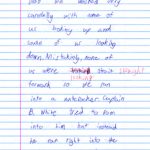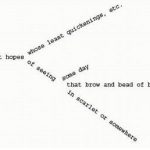Video Games Go to Washington: The Story Behind The Howard Dean for Iowa Game
Ian Bogost
Ian Bogost and Gonzalo Frasca explain a new genre: persuasive games, and delve into the development and emerging legacy of The Howard Dean for Iowa Game, "the first official video game ever commissioned in the history of U.S. presidential elections." This new genre provides an opportunity to rethink the cultural status of games. If games are normally judged by how entertaining they are, persuasive games must be released from this criterion and assessed on how well they convey their message.
The Puppet Master Problem: Design for Real-World, Mission-Based Gaming
Jane McGonigal
Jane McGonigal argues that pervasive games - which involve electronic and 'real world' missions - reverse the traditional conception of the power dynamics of gaming, which has understood gamers as free agents. In contrast, according to McGonigal, designers of pervasive games exercise power over players, though their control is ultimately compromised by players' interpretive agency.
On A Measure for Marriage
Nick Fortugno
Nick Fortugno describes a live-action role-playing game with a real-world consequence - a marriage proposal.
On Itinerant
Teri Rueb
Teri Rueb describes Itinerant and quotes excerpts from the project's vocal track. The installation-style piece uses a GPS system and a headset. As the participant walks through the allotted space, the GPS cues various recordings. Rueb claims to want "to implicate the participant as a charged body in public space whose movement and presence become critical agents in structuring the meaning of the work."
On John Tynes’s Puppetland
Sean Thorne
Sean Thorne explains how he uses Puppetland to help children improve their writing. The RPG allows the students to develop characters, and to participate in the construction of stories so that they're imaginatively invested in what they write.
Political Activism: Bending the Rules
Kevin WhelanKevin Whelan argues that there's not much difference between role-playing games and grass-roots political activism.
Devoted to Fake
Brian Willems
Brian Willems reads a number of fictional and critical texts, from ebr essays to William Gibson's Pattern Recognition, to argue that they all point toward the dissolution of the borders among humans, animals, and machines.
Prismatic Play: Games as Windows on the Real World
John TynesJohn Tynes argues that it took the novel two hundred years to gain cultural capital; film, forty years; rock and roll, fifteen. Given this increasing velocity and the fact that it's been three decades since Colossal Cave Adventure, interactive storytelling should have gained a much higher level of respect than it has. Tynes argues that games should eschew escapist fantasy for more timely "engagist" settings that would allow the player to reflect on contemporary life and politics.
Middle Spaces: Media and the Ethics of Infinitely Demanding
Daniel PundaySimon Critchley's study of ethics has been prominently reviewed by literary and cultural theorists, though most treatments accept the premise that ethical relations are primarily among people, that ethics depends mainly on intersubjective relations. This review by Daniel Punday resituates "Infinitely Demanding" in a networked context, one that is constructed by "media, by global flows, and by the larger network swarms which themselves take on an identity." For Punday, an ethics for our time is best found, not by the study of identities and localities, but rather by authors of contemporary fiction such as Jonathan Letham, Susan Daitch, Ishmael Reed, and Toni Cade Bambara.
Why Make Games That Make Stories?
Jesper JuulJesper Juul argues that James Wallis's focus on definitions in his intervention into the story/game debate doesn't give the experience of story - or game - its due.
Every Game a Story
Corvus ElrodCorvus Elrod extends Bruno Faidutti's claim that all games tell stories by making the counter-intuitive argument that board games like Chess and Go are more effective story vehicles than RPGs.
Pax and the Literary in the Digital Age
David ParryDavid Parry argues that Pax occupies a position between literature and games - that it "glorifies play while undermining games," and that it's "not so much literature as it is literary."
Utopia’s Doubles
Nicholas SpencerNichoas Spencer argues for the importance of "anarchistic and spatial factors" in twentieth-century utopian thought despite the resistance to them in the Marxist texts under review by Brown, DeKoven, Jameson, and Puchner.
Beyond the String of Beads: More Systems for Game Narrative
Monica EvansMonica Evans extends Costikyan's analysis of the narrative/game debate, but ultimately concludes that battles over genre categorization miss the point of electronic media, and that we cannot yet accurately assess how the tension between story and play works out because digital games are "products of a technology still in its infancy."
